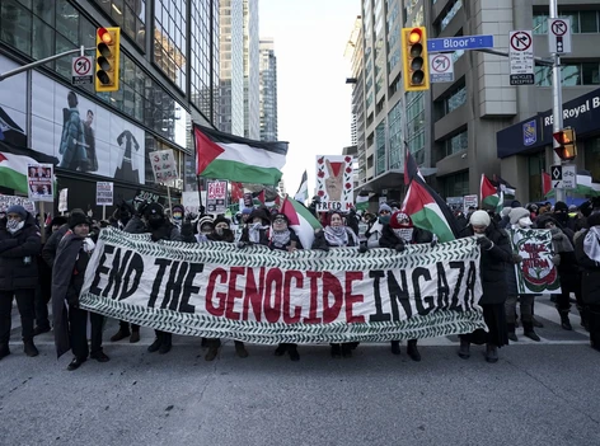In 2016, Dr Peter Hotez and his team were working on a coronavirus vaccine in Texas. The next step would have been to begin trials on people. Instead, he had to pull the plug due to a lack of interest - and funds.

In March this year Hotez, the co-director of the Center for Vaccine Development at Texas Children’s Hospital and Dean of the National School of Tropical Medicine in Houston, testified before the US House Committee on Science.
His team’s vaccine had been created in response to the SARS outbreak over a decade earlier.
We had the vaccine ready to go, Hotez told the committee. But by then nobody was interested in a coronavirus vaccine.
Twenty years have passed since the outbreak of SARS, yet the pharmaceutical industries haven’t considered infectious diseases a matter of priority because they are not as profitable as chronic diseases, Massimo Florio, professor of public economics at the University of Milan, told Euronews.
Analysis by Bloomberg intelligence has shown that the world’s 20 largest pharmaceutical companies operated around 400 new research projects over the past year. Roughly half were devoted to tackling cancer, while only 65 dealt with infectious diseases. Of those 20 big firms, only four had special vaccine units.
The current research system is the victim of an incurable contradiction between the priority of science for health and that of science for profit, Professor Florio says.
’The market sets the agenda’
As countries around the world race to find a COVID-19 vaccine, governments and the European Union are being called upon to guarantee that once one becomes available, it will be accessible and economically affordable for all countries - even the poorest.
On April 17 the European Parliament passed a resolution insisting that any publicly funded research for a coronavirus vaccine must stay in the public domain.
This is a powerful statement, Belgian Green Party MEP Petra De Sutter told Euronews. The idea that the market solves everything is fake. In a time of crisis, governments have to face the issue.
Before the resolution was voted, she was one of the signatories to a letter from a cross-party group to the European Commission, demanding urgent action to ensure the economic affordability of any COVID-19 vaccine funded by the European Union. The letter expressed alarm that no such provision had been included in publicly-funded research projects.
The pharmaceutical one is not like a common industry. It’s not about buying a new television set. Consumers have no choice when they are ill and in need of a specific drug, De Sutter explained.
Right now, it’s the market that sets the agenda on the development of new drugs. Yet, the market would never invest in something that doesn’t appear to be profitable. Moreover, some highly expensive drugs are developed also thanks to public funding. For this reason, we need to rethink a European-led research on health and drugs in accordance with people’s needs, De Sutter said.
Global project to ensure access to COVID-19 medical products
According to the World Health Organization, 62 research programmes are currently underway in laboratories around the world to find a vaccine for COVID-19.
Recently, Costa Rica asked the WHO to create a voluntary pool to collect patent rights, data and other information so as to widen access to medical products for combating the coronavirus.
In response, the world health body launched a global project named Access to COVID-19 Tools Accelerator to ensure worldwide access to resources, although the extent to which the project will include a pool to collect patent rights remains unclear.
In Europe, although there is a European Patent Office - whose monopoly patents generally last 20 years - each country independently negotiates the cost of a drug with the pharmaceutical industry.
In Germany, the Protection against Infection Act has been recently amended to give the Federal Health Ministry additional powers - including the competence to order limitations on patents - when the Bundestag finds there is an epidemic situation of national significance.
Outside the EU, Canada has amended its laws amid the COVID-19 emergency to gain easier access to compulsory licenses, a mechanism which enables governments to pay a set fee for an intellectual property without seeking the rights holder’s consent.
In the past, some developing countries used similar strategies to treat their citizens. In 1997 South Africa passed a Medicines Act to obtain patented HIV life-saving medicines from countries where they were sold more cheaply. At the time some of the world’s largest pharmaceutical companies took the South African government to the Pretoria High Court - before backing down in the face of overwhelming public pressure.
Danger of ’stark inequality in access’ to new COVID-19 treatments
On April 15 more than 20 organisations wrote to the UK government asking that any COVID-19 vaccine or treatment obtained with public funds be made available for all.
Without such safeguards, there may be stark global inequality in access to new COVID-19 technologies, as was experienced during the H1N1 flu outbreak in 2009 where the wealthiest countries bought up most of the vaccines first, the letter says.
The patient campaign Just Treatment, which has been demanding fair access to medicines for years, is among those who signed the document. A year ago the group supported the campaign to made Orkambi, a drug to treat cystic fibrosis, available to all patients.
While today the deadlock has been resolved, at the time the NHS said it couldn’t afford the high prices of the new drug to make it available. As a result, some parents of children with the disease clubbed set up a buyers’ club to buy a generic version of the medicine from Argentina at a more affordable price.
We are facing a new wave of patent-protected drugs, mostly cancer drugs, at a very high price in the European market. We are likely to see monopolies leading to restrictions on access, based largely on price, Diarmaid McDonald, Just Treatment’s lead organiser, told Euronews.
Right now, we have a global pandemic and the response also should be global. This is the moment to clear conditions about public funding.
Just Treatment supported also hepatitis C patients to obtain the drug they needed. When Sofosbuvir came to the market, in 2015, the high price of the medicine had been a barrier to access it. The NHS rationed it so that the drug was immediately available only to the sickest patients: others were forced to wait for months and years to access the treatment, McDonald explained.
’The entire system has to change’
This must not happen again, Simon Brasch, a Just Treatment leader and a former hepatitis C patient told Euronews. I clearly remember I went through a medical examination to learn whether or not I could access the treatment. The doctor told me my liver hadn’t deteriorated enough, so I had to wait. I couldn’t believe it. I said to myself: maybe I should drink a couple of vodkas every night till my liver gets worse, so that finally I could be treated.
Finally, I accessed the medicine, but what about the next expensive drug that won’t be available in the future? It’s the entire system of the pharmaceutical market that has to change, Brasch said.
Doctors Without Borders has also signed the letter to the UK government. Since 1999, when the NGO won the Nobel Peace Prize, it has been fighting for the affordability of medicines, through its Access campaign. We know too well from our work around the world what it means to not be able to treat people in our care because a needed drug is just too expensive or simply not available, the NGO said in a public statement.
A year ago, for the first time in Europe, Doctors Without Borders and other NGOs used a new humanitarian mechanism to vaccinate refugee children in Greece against pneumonia at an affordable price. Thanks to this mechanism the vaccine has a special reduced price of about US$9 (€8.23). Without that safeguard, the price of the vaccine in Greece would have been US$168 (€153.80) per child.
While the ‘Humanitarian Mechanism’ has been useful in protecting children in crisis, countries at all income levels continue to struggle to access the pneumonia vaccine at an affordable price, the NGO said on a statement.
Approximately one-third of countries globally have not been able to include the pneumonia vaccine in their standard vaccination package due to the exorbitant price charged by Pfizer and GSK, Doctors Without Borders announced, referring to the two pharmaceutical producers of the vaccine. Pneumonia remains the single largest killer of children under five worldwide, the organisation went on to say.
According to a WHO report, in 2017 more than 800,000 children under five died due to pneumonia, accounting for 15% of all deaths of children in that age group.
’An opportunity to rethink the rules’
The emergency we are experiencing must be an opportunity to rethink the rules that have defined the pharmaceutical market in recent decades, says Professor Massimo Florio of the University of Milan.
Various surveys have shown that in recent years pharmaceutical companies tend to invest only in the final stages of research when the profit appears assured, while the initial steps are carried out thanks to the resources of universities or associations.
This pandemic highlights the failure of the current pharmaceutical market. For this we need a European public structure that produces the drugs that the private sector does not care about or that exist on the market only at exorbitant prices, Professor Florio says.
Today we can’t believe that developed countries like ours woke up without a vaccine and drugs to fight COVID-19, and even without masks. This must not happen again.
SOURCE: Euronews
LINK: https://www.ansarpress.com/english/17045
TAGS:






























 Farkhunda Buried, Ghani Appoints Fact-Finding Team
Farkhunda Buried, Ghani Appoints Fact-Finding Team




